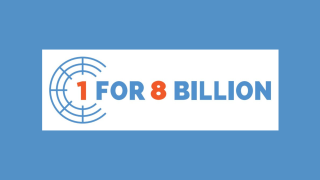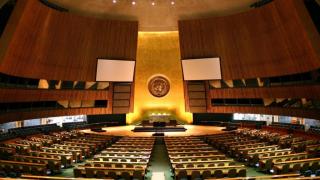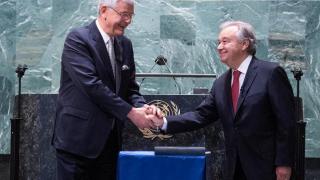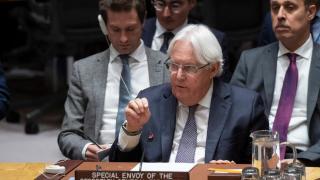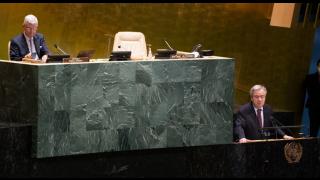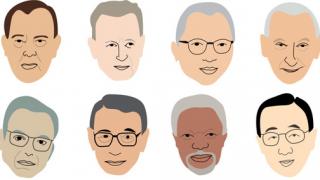
During a House of Lords debate on 22 July, peers called on the UK Government to support a more transparent, meritocratic and robust selection process for the appointment of the next UN Secretary-General.
Initiated by UN APPG member Lord Judd, the discussion centred on the need for a better process to reflect modern best practice as well as the ever-increasing responsibilities of the role.
UK urged to back robust process
The UK was encouraged to support:
-
a published selection criteria for potential candidates
-
a democratic process with meaningful involvement by the 193-member UN General Assembly
-
an early start to search and selection, allowing sufficient time for a thorough, well-organised process
-
the principle of gender equality throughout the process
Peers also called on the UK to oppose:
-
the notion of regional pre-emption - an accepted, but non-binding, practice whereby regions of the world take it in turns to provide the pool of candidates for selection
-
use of the veto by the five Security-Council permament members with regard to candidate selection
Government response
Speaking on behalf of the Government, Baroness Warsi, Senior FCO Minister of State, said that the UK wants "to see a proven leader fully committed to the values of the UN" as Secretary-General, "with sufficient political authority and expertise to lead and manage" the organisation.
In response to questions regarding the desirability of female candidates for the role, and the drawbacks of regional pre-emption, she stated that "it is important that we find the best candidate to do this incredibly important job, and we have the pick of the world".
She did not outline support for any concrete measures to improve the selection process, saying that the UK Government does not "put forward the criteria for candidates" and that while transparency was important, agreement and consensus were "essential in getting off on the right foot".
She stated that "the current system whereby the Security Council nominates a single candidate for the General Assembly continues to ensure that the candidates receive maximum support".
The case for reform
While UNA-UK welcomes the UK's stated desire to find the best candidate for the role, we believe that the UK can and should support a more transparent, inclusive and robust process.
Largely unchanged since 1945, the process is outdated, opaque and out of step with modern hiring practices, including for other senior UN posts.
There is no formal timetable for the process, no job description and no vetting of candidates. Only the Security Council has a real say in the selection. It endorses a single candidate for the rest of the UN's membership to rubberstamp.
Despite some outstanding incumbents, the process cannot be relied upon to select the best candidate. It risks damaging the legitimacy of the role and of the UN more broadly. We have now reached a tipping point where the majority of member states have spoken out against the status quo.
A more inclusive approach involving all UN member states would give the new Secretary-General a broader support base and mandate for action. Public engagement with and confidence in the process would go some way to reconnect people with the promise of the UN.
UNA-UK campaign
As a permanent member of the Security Council, the UK has a particular responsibility for, and role to play, in pushing for a better process.
Unlike other areas of UN reform, most of the practices governing the Secretary-General's appointent are customary or have their roots in non-binding decisions. They can therefore be updated through changes in working practices and simple resolutions.
In order to ensure the ground is ready in time for the appointment of the next Secretary-General in 2016, UNA-UK is calling for the debate on amending the rules to begin immediately.
States should start putting forward concrete proposals for improvement, with a view to agreeing a process and timetable in 2015. This would leave time for meaningful engagement, and also have symbolic value, as a signal reform to mark the UN’s 70th anniversary.
Over the next 30 months, UNA-UK will partner with organisations from around the world on a major campaign to improve the selection process, and we look forward to working with the UK on this vital UN reform issue.
Click here for our New World briefing on the Secretary-General appointment process
Image: Cartoon depictions of the UN's eight Secretaries-General

